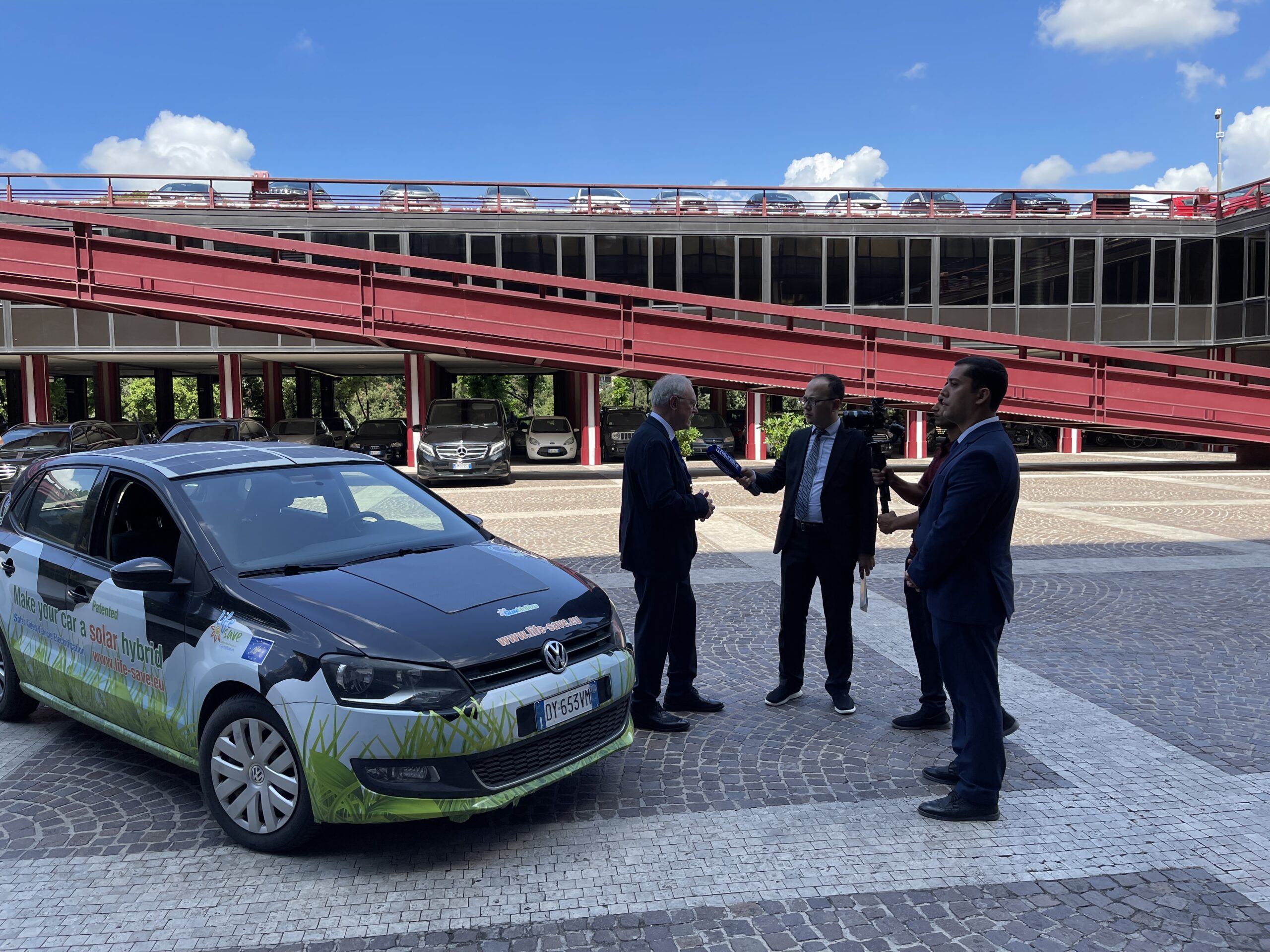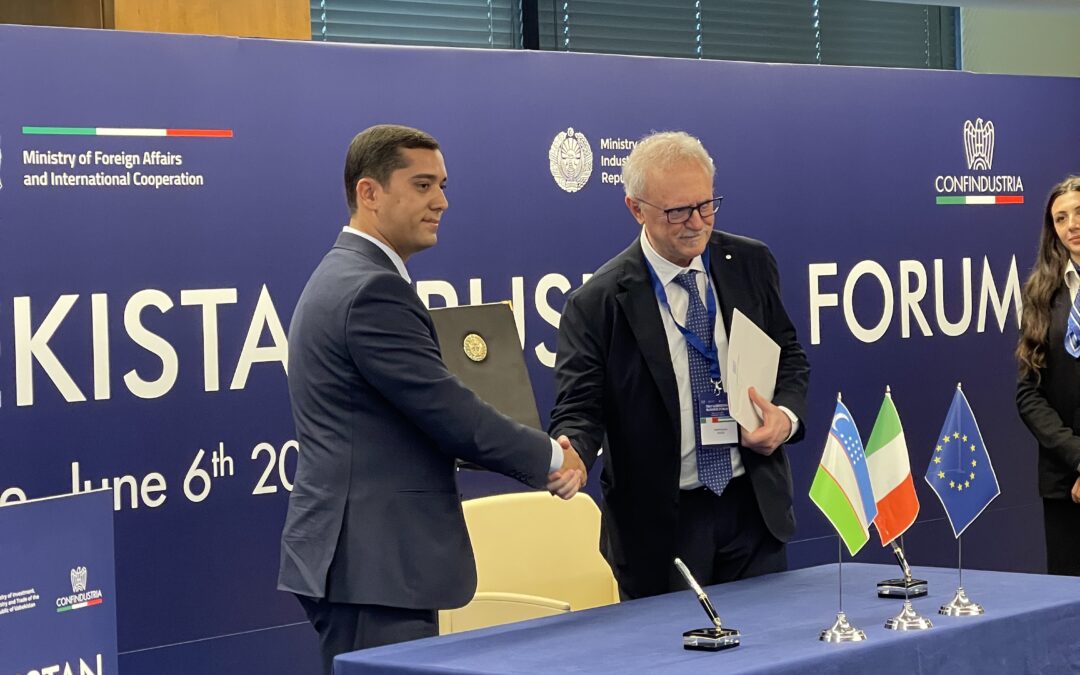On June 6th, we were in Rome to sign, on behalf of SunMotive, represented by Gianfranco Rizzo, a collaboration agreement with the “Agency for Innovative Development” of Uzbekistan, represented by Olimjon Tuychiev. The signing took place during the “Italy-Uzbekistan Business Forum“, organized by the Ministry of Foreign Affairs and International Cooperation, in collaboration with ICE Agency and Confindustria. The aim was to establish a joint venture for the eco-conversion of cars into hybrid and hybrid-solar vehicles. The agreement accelerates the industrialization process of the conversion kit developed within the LIFE-SAVE project, still delayed by some legislative limitations in Italy.
During the meeting, which took place at the Confindustria headquarters in Rome, the Uzbek partners had the opportunity to see and test the latest prototype of the project (the VW Polo in the photo).

Gianfranco Rizzo, CEO of eProInn, interviewed by Uzbek TV following the signing of the agreement
Why Uzbekistan specifically? It is the most populous country in Central Asia and has experienced consistent GDP growth since 1996. Trade exchange has grown by 32% compared to last year (reaching 535.4 million euros), with a prominent role played by Italian exports, making Italy the second-largest European trading partner of the Central Asian country in 2022.
Economic development and population density have contributed to the deterioration of air quality, a global issue that knows no borders. Our technology is designed to specifically address this kind of problem, fitting into a context where the option to choose other solutions (such as purchasing new hybrid or electric vehicles) is limited due to various factors.
SunMotive: a few words about eProInn’s new start-up
The agreement was signed by SunMotive, the innovative startup founded by eProInn and ATS (Mecaprom), both partners in the LIFE-SAVE project for the development and industrialization of the conversion kit for conventional cars into hybrid-solar vehicles. The startup was born as a result of the project, with the specific goal of bringing the kit to the market. The adoption of the developed system will accelerate the transition to sustainable mobility, offering a valid and more accessible alternative to the purchase of a new hybrid or electric vehicle.

